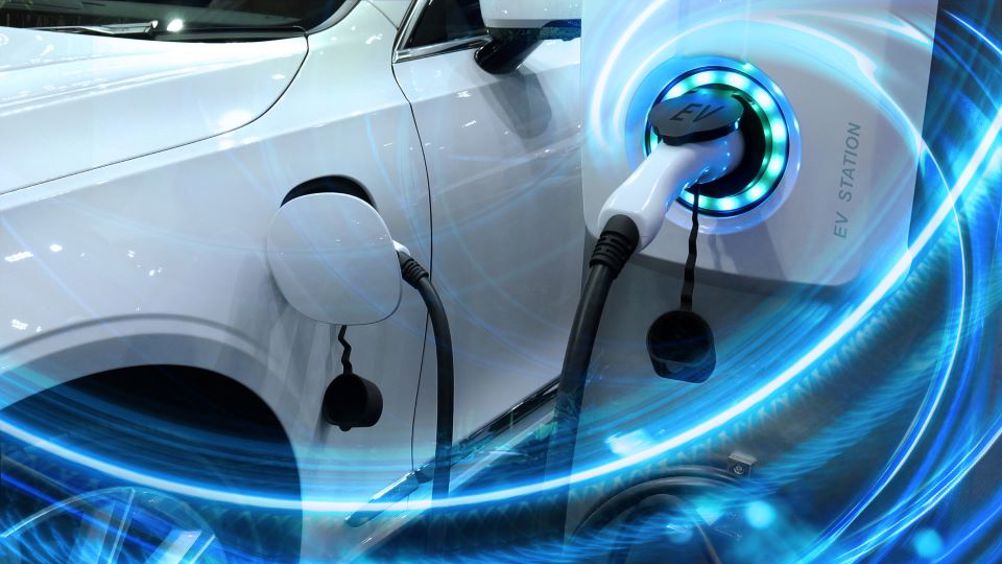With businesses worldwide committing to Net-zero, demand for electric vehicles (EVs) is increasing. In fact, British factories produced a total of 234,066 electric and hybrid vehicles – 42,284 just in December – in 2022 alone. This is a new record and speaks to the fact that, in Britain today, one in every three vehicles made is electric.
However, any large-scale transition will face hurdles, and there is much debate over whether the UK’s EV-related infrastructure can handle such a shift. This is particularly relevant when we consider the rising energy costs and how this is leading many businesses to question if adopting EVs is a sensible decision in the long term.
Rising costs across the board
There is certainly evidence to suggest that consumer attitudes have shifted. Recent research from the AA has shown that 70 per cent of drivers are put off owning an EV due to rising energy costs.
But high energy costs are not the only factor here; increasing costs and shortages of raw materials, and scarcity of parts also play a role in reduced vehicle production. Lower demand due to reductions in disposable incomes also has a marked effect. Additionally, charging an EV has become more expensive - owners are seeing increases of 10 per cent or more when charging at home or through third-party operators.
There is also the issue of funding. In Germany for example, rising energy costs are seeing state EV subsidies be slashed by 50 per cent to just €4500 (£4,000) per vehicle from 2023. The combined figure of available subsidies will be capped at €2.5bn, which is enough to provide bonuses for 400,000 EVs – just one per cent of all cars currently on the road in Germany. The reduced subsidies may eventually take place in the UK, as the long-term hunger for EVs is in decline with 59 per cent of people saying they expect to own one in the next ten years, compared to 66 per cent last year. Meanwhile, subsidies for hybrid vehicles, currently at €6,750 (£6,000), will disappear completely. It is possible, that other countries may follow suit as well.
A lack of infrastructure
A transition to EVs raises questions over the availability of charging ports. In the UK, the Climate Change Committee estimated that 1,170 charging stations for every 100km will be required by 2030. However, if the current growth rate is maintained, just one-quarter of these will be implemented by 2032.
Despite recent bumps in the road, demand for EVs has drastically increased in response to the Net-zero by 2050 pledge. While this is certainly a good thing, the reality is that infrastructure is struggling to keep up. There are also regional disparities to consider – currently, some areas of the UK have just two charging points per 100 drivers. Clearly, the country’s capacity of EVs will need to increase.
Why EVs should still be a priority.
Though there are clear challenges ahead, transitioning from diesel and petrol-powered vehicles and electric vehicles (EVs) is a necessity. Switching to EVs also holds many advantages; diesel cars may cost less to buy or lease, but EVs’ lower running costs make them a far more affordable investment in the long-term.
The overall environmental impact of EVs is also significantly lower. In Europe, the average electric car produces nearly three times less CO2 than its combustion-powered counterpart - businesses can leverage this to reduce their carbon footprints.
A valid question to ask is whether the infrastructure is or can be put in place to support a transition to EVs en masse. In the UK, the government recently announced an initiative to drastically improve smart EV charging infrastructure to alleviate the burden of soaring energy costs on drivers. This involves expanding the availability of charging points across the country and optimising the existing infrastructure to cope with more EVs. Among other things, this will allow businesses to consider EVs for longer journeys.
The hydrogen alternative
With so much coverage of the “EV revolution”, it is easy to forget that other fossil fuel alternatives still exist. Perhaps the best-known example is hydrogen fuel-cell electric vehicles (HFCEVs).
Indeed, many car manufacturers still see a place for these vehicles in a less homogenous future automobile market. Equally, however, synthetic biofuels could help prolong the life of combustion vehicles. Ultimately though, a range of technologies will be required to balance the planet’s needs with those of the consumer. As such, hybrid technology, Autogas and other powertrains should also not be forgotten.
The benefits of hydrogen
Essentially, hydrogen cars are electric vehicles. What distinguishes them from “pure” EVs is how they store their energy onboard.
But HFCEVs have numerous benefits of their own. Firstly, the only thing they emit into the atmosphere is water vapour so they have clean tailpipe emissions. They can also refuel just as quickly as any petrol or diesel car, have a greater range than current EV technology allows for and do not require heavy onboard batteries.
Although hydrogen is a proven technology, how clean it is dependent entirely on its creation. Brown hydrogen is created through gasified coal or lignite – a “dirty” power source. There is also grey and blue hydrogen which involves steam methane reformation – the former uses natural gas, whereas the latter uses carbon capture.
The only true “clean” variant is green hydrogen, which is produced via water electrolysis using renewables. It is this that makes hydrogen more compelling. The UK is establishing a new £240m Net Zero Hydrogen Fund (NZHF) to further low-carbon hydrogen production in Britain.
Will hydrogen fuel cells ever take off?
To make hydrogen viable, most western countries would need to pivot on energy supply dramatically. At this moment in time, this looks unlikely to happen in the UK – the necessary infrastructure simply is not there – but the right investment and leadership from the government could change this. The UK’s Hydrogen Strategy was released in 2021 and specifies a target of producing 5GW of clean hydrogen by 2030. If this can be realised, a much more hydrogen-based economy could take shape as Britain heads towards its Net-zero target by 2050.
To say that there are obstacles in the way of the mass adoption of EVs is an understatement. Lack of charging, rising costs, reduced funding and lack of materials will hinder the growth of EVs undoubtedly. However, there is certainty in the fact that the EV revolution will take place, and when it does businesses will see huge benefits to their long-term expenditure reduction and carbon footprint levels. It is imperative that businesses ensure that their long-term priority is to transition their fleets to an electric one.

Mike Palmer, client development director at Nexus Vehicle Rental











National Gas receives funding to develop Gravitricity underground hydrogen storage system
One single rock salt mine - Winsford - has 23 <i>MILLION </i>cubic metres of void and even allowing for 10% of that void set aside for hazardous waste...